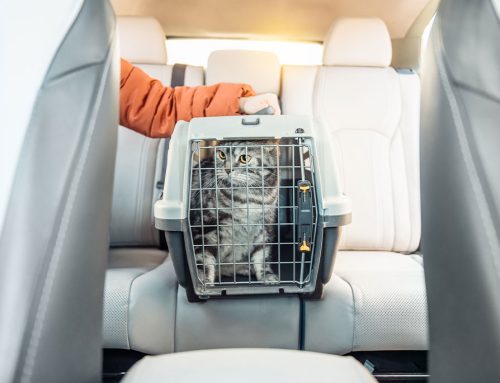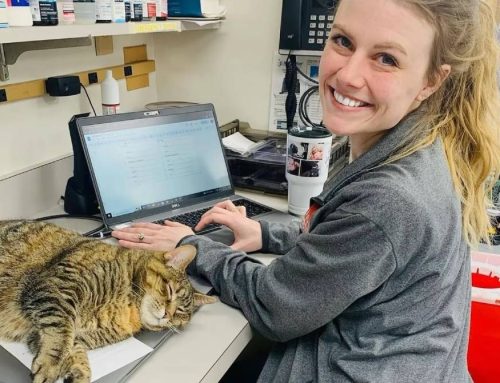Brood X last emerged in 2004, and is due to emerge in the coming weeks after heavy rain once the soil temperature warms up. There can be over a million adult cicadas per acre in certain areas. The adults will emerge from the ground with one goal: to reproduce. They will shed their skin, leaving them hanging behind on tree trunks or walls. The males sing – loudly – to attract the females. Once they mate, the females will lay their eggs in small tree branches. The larvae will hatch, drop to the ground, and burrow down to wait for their turn to emerge 17 years from now.
Thankfully, cicadas don’t eat much as adults, so most plants are safe from the insects. The only risk is to small tree branches that might be damaged by the larvae. Cicadas also don’t bite or sting, so they’re more of a nuisance than a pest to us humans.
Want to help scientists track the cicadas? Go to or download the Cicada Safari app to document the cicadas near you!
So enough about the cicadas – what about our pets?
Dogs and less fastidious cats will try to snack on the cicadas and their shells.
Eating one or two cicadas is highly unlikely to cause any harm, unless your pet happens be allergic (very rare, but possible, just like some people are allergic to bee stings).
Supervise your pet outside, since the hard insect exoskeleton could cause choking.
Eating a lot of cicadas can lead to GI problems:
- vomiting
- diarrhea
- intestinal obstruction
- exposure to pesticides, depending on what was applied to the soil over the larvae
The bottom line – don’t let your pets eat a lot of the cicadas, but don’t panic if they grab a small snack. Now is a great time to teach the “drop it” command if you haven’t already – you’ll have lots of chances to practice it in the weeks ahead! No time to teach a command? Spend 5 minutes a day getting your dog used to wearing a basket muzzle – they’re roomy enough that your pooch can eat treats, drink water, and pant while wearing one, but won’t be able to pick cicadas up off the ground.









Leave A Comment